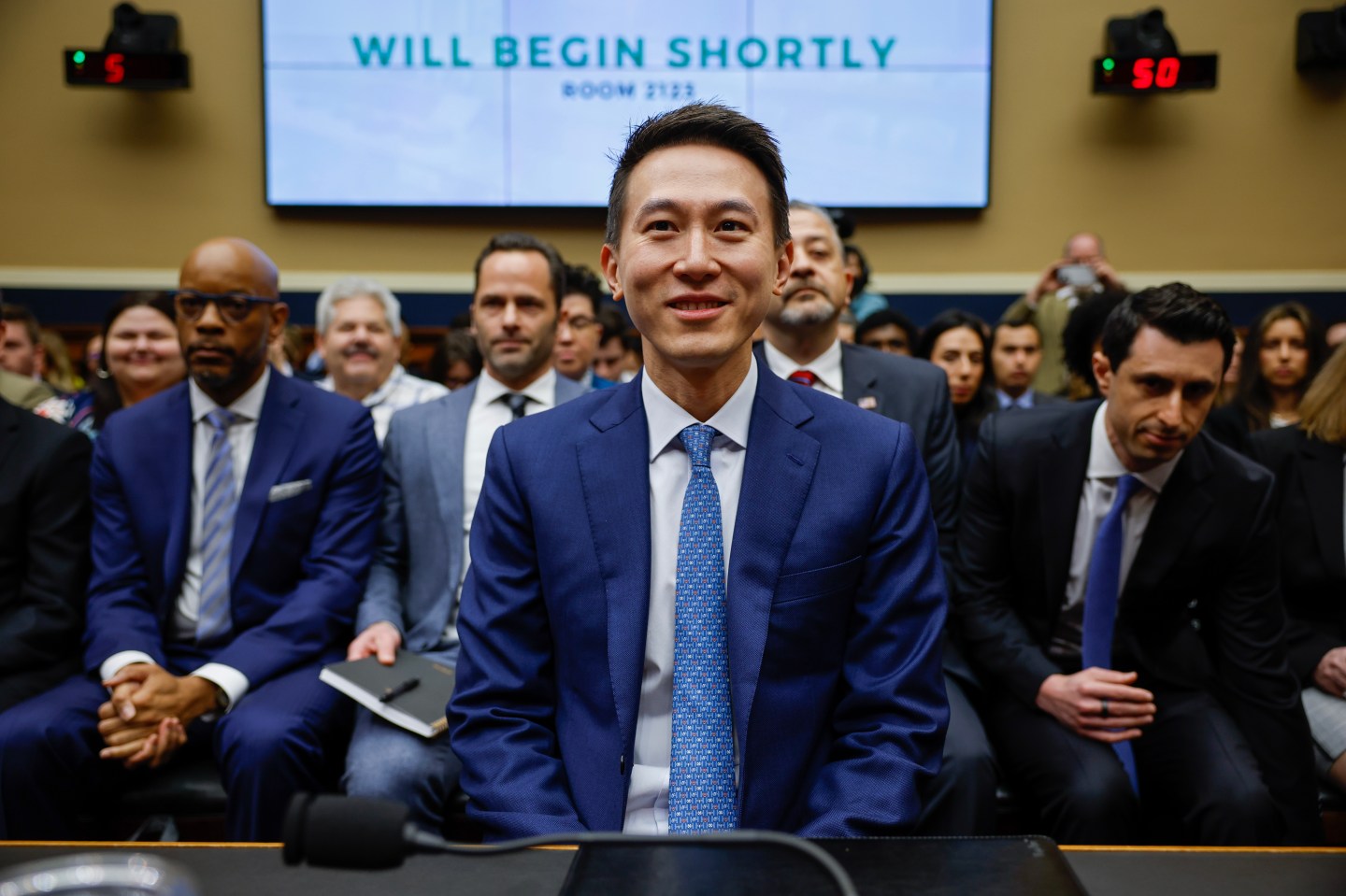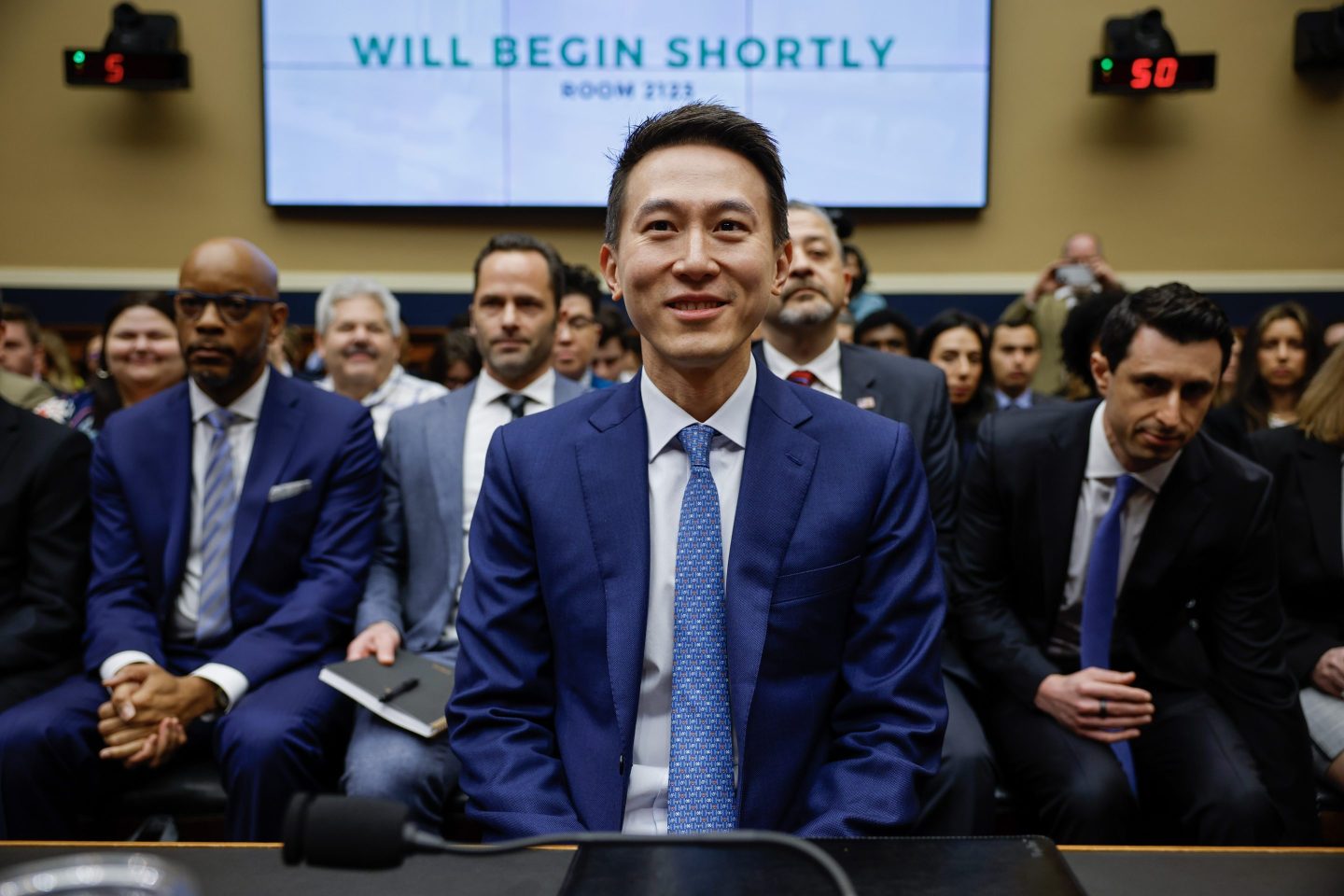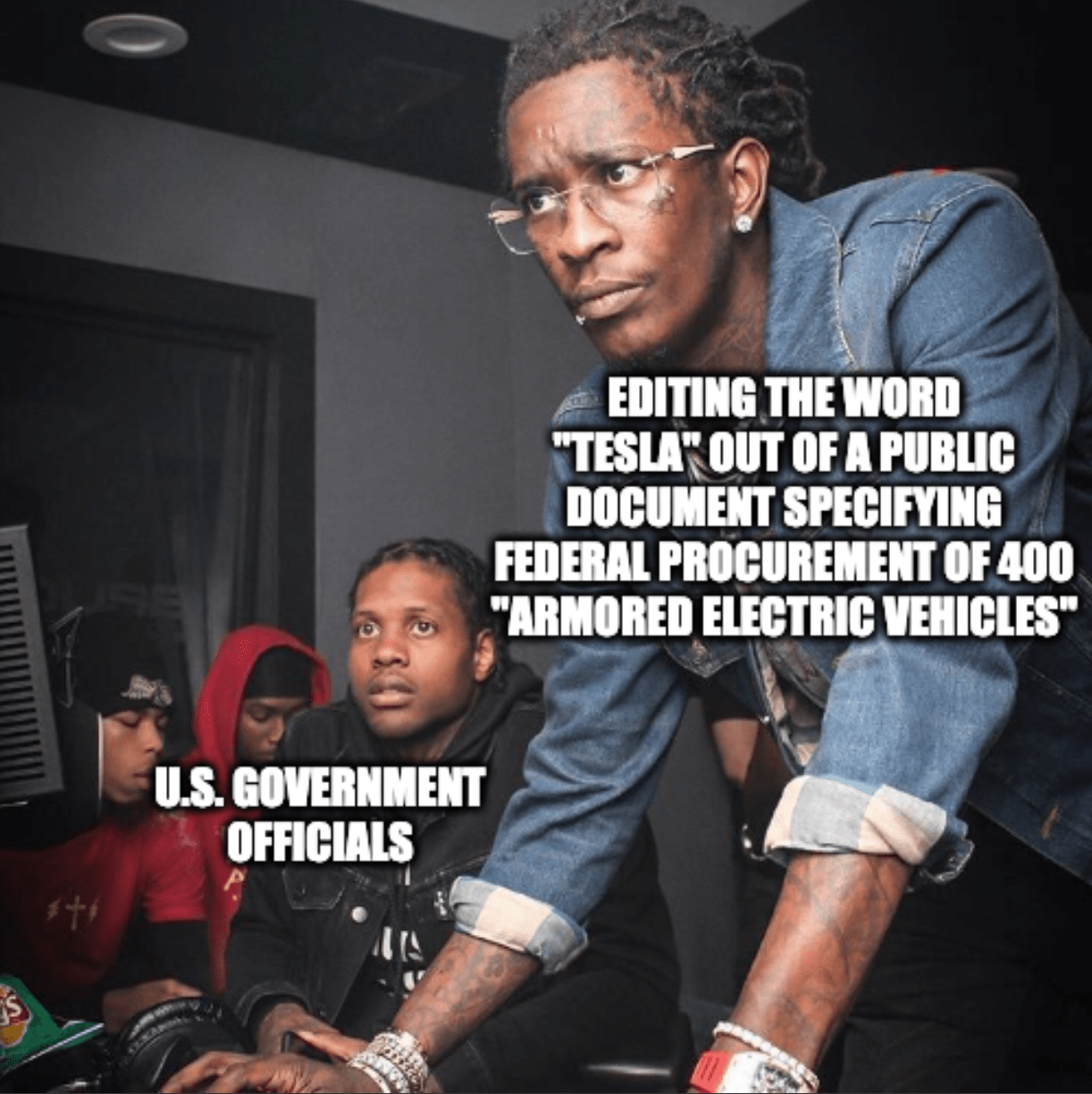Good morning. Happy Valentine’s Day to those who celebrate.
To quote Samantha from the 2013 film Her: Are these feelings even real, or are they just programming? (But maybe don’t put that on a card, mmm?)
Today’s news below. —Andrew Nusca
Want to send thoughts or suggestions to Data Sheet? Drop a line here.
TikTok returns to Apple, Google app stores

TikTok is once again available for download in Apple’s App Store and Google Play after weeks of unavailability in the wake of the U.S. ban on the video service.
If you had downloaded TikTok before the ban, you only saw a brief outage before things largely returned to normal. But anyone who needed to download the app once the ban took effect couldn’t as questions swirled about the Trump Administration's commitment to enforcing the law banning TikTok.
Those were quickly answered once President Trump signed an executive order to delay enforcement by 75 days, to April 4, while he pursued an alternative arrangement.
Since then, Trump has not been particularly concerned with the approaching deadline, signaling continued nonenforcement to the tech companies who enable TikTok’s service.
“I’m sure it can be extended,” he said this week, raising concerns that he is putting executive power over the rule of law.
The TikTok divest-or-ban order emerged in the wake of legislators’ concerns that ByteDance, TikTok’s Beijing-based parent company, could hand over U.S. user data to the Chinese government and allow Chinese officials to encourage misinformation on the algorithmic platform.
TikTok rejected the claims, arguing that a ban infringed on American users’ protected right to free speech, but the Supreme Court unanimously upheld the law in January. The law only prohibits TikTok if ByteDance fails to sell an 80% stake to an approved buyer. —AN
Elon Musk has no interest in a nonprofit OpenAI
Elon Musk will pull his bid to take over OpenAI if the company abandons its plan to convert from a nonprofit to a for-profit company, according to his lawyers.
The development adds credence to the interpretation of Musk’s shock takeover attempt as an elaborate pressure campaign, rather than an actual play to operate OpenAI—which he once co-founded—as well as his rival xAI outfit.
OpenAI was founded as a nonprofit research lab aiming to build “safe and beneficial artificial general intelligence” that benefits “all of humanity,” but over time it has increasingly focused on its for-profit arm, as it has required ever more outside investment. Now it is trying to convert to a for-profit operation, so it can take on even more investment.
Musk has already sued to stop this change, in a case that is likely to go to trial. Many have seen his offer of $97.4 billion as a way to at least attach a very expensive price tag to the conversion—OpenAI will have to compensate the nonprofit entity in the process, and Musk has now set a floor for the assets that would be transferred to the new company.
“If [the] OpenAI board is prepared to preserve the charity's mission and stipulate to take the 'for sale' sign off its assets by halting its conversion, Musk will withdraw the bid,” Musk’s lawyers said in a filing. Or, “the charity must be compensated by what an arms-length buyer will pay for its assets.” —David Meyer
Arm reportedly plans to launch its own chip
The SoftBank-owned chipmaker Arm plans to launch its own chip this year, according to a new report.
It’s a big shift for Arm, which has historically licensed its intellectual property—architecture design, processor design, etc.—to Apple and Nvidia for their own chip uses.
A Financial Times report says Arm, which is headquartered in England and led by Rene Haas, has secured Meta as an early customer.
The company will reportedly unveil the chip, rumored to be a customizable CPU for servers in large data centers and manufactured by Taiwan’s TSMC, this summer.
There’s quite a bit at stake. The semiconductor industry, already valued at $700 billion, is in tremendous flux as the global race for AI reshapes the business. Adding fuel to the fire is the current geopolitical standoff between the U.S. and China, whose tariffs and restrictions have led chipmakers to redraw supply lines.
SoftBank’s Masayoshi Son, who chairs Arm’s board of directors, has expressed regret in recent months that he miscalculated the last wave of AI, selling his Nvidia stake before the company reached its recent peak in value.
Though he’s been talking about AI for more than a decade, he’s been involved in a flurry of dealmaking as of late to seemingly make up for lost time—among them the Stargate Project, which targets U.S. AI infrastructure, in partnership with OpenAI, Oracle, Microsoft, Nvidia, and…Arm. —AN
More data
—Airbnb shares pop 15%. Q4 earnings and revenue top analyst expectations.
—Apple teases new device. “Newest member of the family” announcement on Feb. 19.
—Coinbase beats expectations. Q4 revenue up 138% from last year to $2.27 billion.
—Prominent media companies sue Cohere. The Atlantic, Condé Nast, Vox, and more allege it used copyrighted works to train its AI model.
—Roku platform revenue tops $1 billion. Shares of the streaming tech company jumped 14%.
—Anthropic’s next AI model, a “hybrid” of conventional model and a reasoning one, will reportedly debut in a few weeks.
—Pig butchering: so hot right now. Revenue for the steal-your-cryptocurrency scam is up 40%.
—Baidu’s next AI model will be open source. CEO Robin Li changes his tune on Ernie in the wake of DeepSeek’s disruption.
—SpaceX steps closer to creating a Texas city called—what else?—Starbase.
—U.K. inks major deal with Anthropic to transform public services, but reduces its emphasis on societal AI safety.














